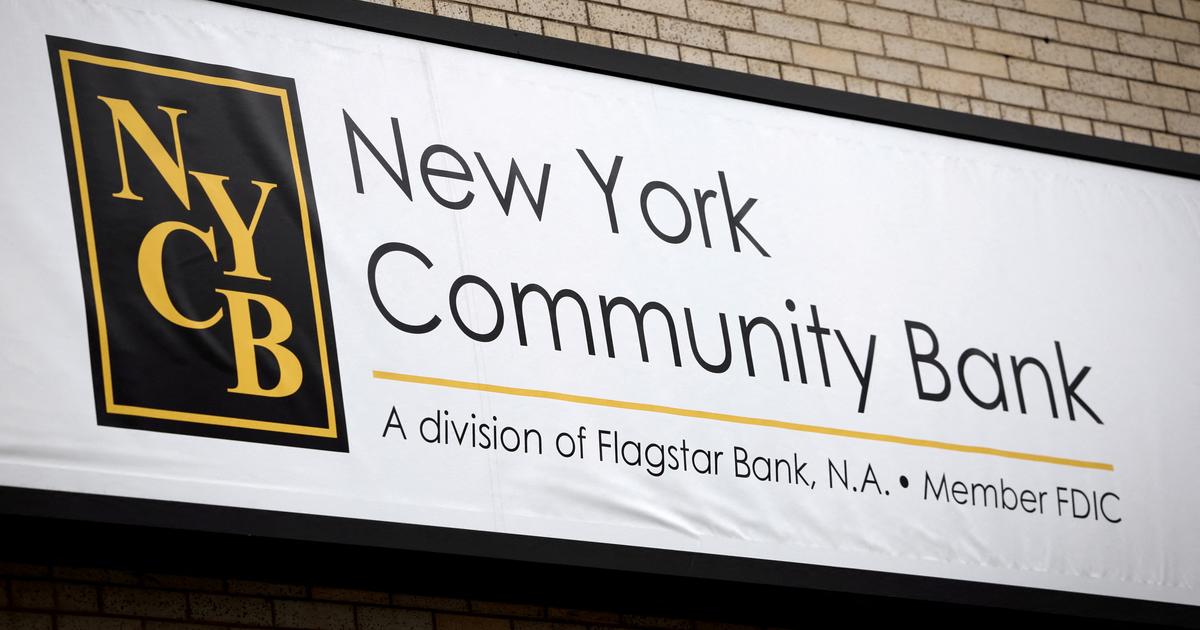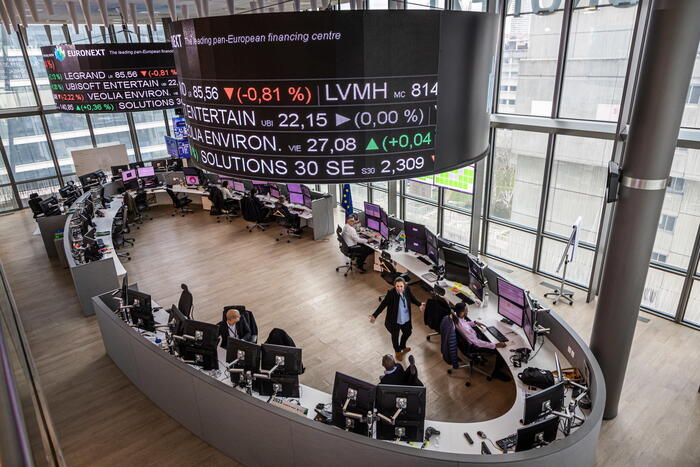Sometimes Wall Street has to go through a sieve.
One such moment came seven years ago, when companies like Morgan Stanley and Goldman Sachs had to accept that trading fixed-income securities was no longer making the volumes of money it once did.
Heads rolled.
Now the big banks are bracing for another big adjustment, as the surge in revenue caused by two years of unstable markets and outlandish deals is coming to an end.
This time the cuts will not be as deep, but they will be just as traumatic.
Since the end of 2019, the companies' workforces have been inflating, as has their income.
Morgan Stanley has added about 18,000 employees, an increase of 30%.
Goldman Sachs has hired an additional 8,700 people, while JP Morgan's corporate banking and investment division has grown by about 13,000 people.
In total, these companies, along with Bank of America and Citigroup, have increased the number of employees by 10%, according to figures obtained from their published data.
But operators and advisers eat what they kill, and prey is now scarce.
Income from trading and deals plummeting.
Investment bank Jefferies Financial reported a 32% year-over-year decline in revenue for the fiscal second quarter on Wednesday.
JP Morgan's investment banking chief, Daniel Pinto, has warned that commissions related to operations could fall 50% in the three months to the end of September.
Wall Street seems “staffed for optionality”, as Morgan Stanley boss James Gorman put it in 2016, after laying off a quarter of his firm’s fixed income traders.
It's true that some big US investment banks have eaten lunch from less successful rivals like Credit Suisse and Deutsche Bank, adding staff along the way.
Still, while global revenue is up 40% since the end of 2019, the 12 biggest firms now have the same number of what are known as "front-facing producers" as they did then, according to late-2019 Coalition data. of March.
In effect, the banks have just squeezed more rain out of the same rainmakers: $4.2 million per person in 2021, up from less than three million before the pandemic.
So what are all those leftover people doing?
Many of them are software engineers, hired to make banks more agile and customers more loyal.
Goldman has staffed his consumer bank, Marcus.
JP Morgan moved some of the payments staff to its investment banking unit in 2020. These people cost money, but many don't directly contribute it.
Acquisitions have also boosted headcount numbers: Morgan Stanley acquired some 6,000 people when it bought online broker E*Trade and asset manager Eaton Vance.
The consequence is an impending dilemma.
The banks have more mouths to feed, while the feeder is getting smaller.
In 2019, a big year for sales, trading, and trading, Goldman, Morgan Stanley, JP Morgan, Bank of America, and Citi collectively brought in $107 billion in revenue.
In the four quarters until the end of June, that same quintet entered 156,000 million, according to the data of its public declarations.
The correction of the markets so far this year suggests that gross income could return to what it was before.
The first recourse against declining income at investment banks is to pay people less.
Employees are already bracing for meager bonuses.
But if revenue levels are permanently reduced, banks will have no choice but to cut staff.
One answer is to let people go and not replace them.
That's not ideal: banks end up losing people they'd rather keep, testing the patience of those who stay.
Even in a shrinking industry, talented negotiators and traders are finding new employers with ease.
At the end of July, job openings in finance and insurance were more than 70% higher than the five-year average, according to surveys by the US Department of Labor. Both Pinto of JP Morgan and his boss, Jamie Dimon,
The risk of being left behind
The alternatives are also unconvincing.
Laying off tech staff puts a bank at risk of being left behind in the shift to digital finance, and eats away at future efficiency gains.
All big companies have other divisions that could do a heavier job, like Morgan Stanley's wealth business, Goldman's consumer bank, Citi's credit card and trade finance business, and JP Morgan's colossal commercial banks. and Bank of America.
Each will have to deal with their own challenges from slowing economic growth and deteriorating credit quality.
If the templates can't take the hit, the shareholders will.
You're already primed for some discomfort: Share prices of big financials are down a third or more since the start of 2022. That's not much more than the broader S&P 500, though. Goldman and Morgan Stanley raised their target return on equity to around 15% earlier this year.
Citi chief Jane Fraser's recent target of a 12% return on tangible equity is lower, but already ambitious for a company struggling to recover.
This opens the door for disappointment, as falling revenues collide with staff that are difficult to cut.
The bank most likely to take the ax might be Goldman, which has reverted to its model of picking on the lazy to get rid of underperforming employees.
However, it will only reduce the workforce by just over 1%, according to a source familiar with the situation.
Cutting staff in a bad market becomes difficult for Wall Street bosses;
having no one to cut makes it difficult for investors.
FOR MORE INFORMATION: BREAKINGVIEWS.REUTERS.COM The authors are columnists for Reuters Breakingviews.
The opinions are yours.
The translation is the responsibility of EL PAÍS
Follow Business information on Twitter, Facebook or in our weekly newsletter

/cloudfront-eu-central-1.images.arcpublishing.com/prisa/ZXLDW4BQVVHDLJSVZ2MJ2WKPZA.jpg)







